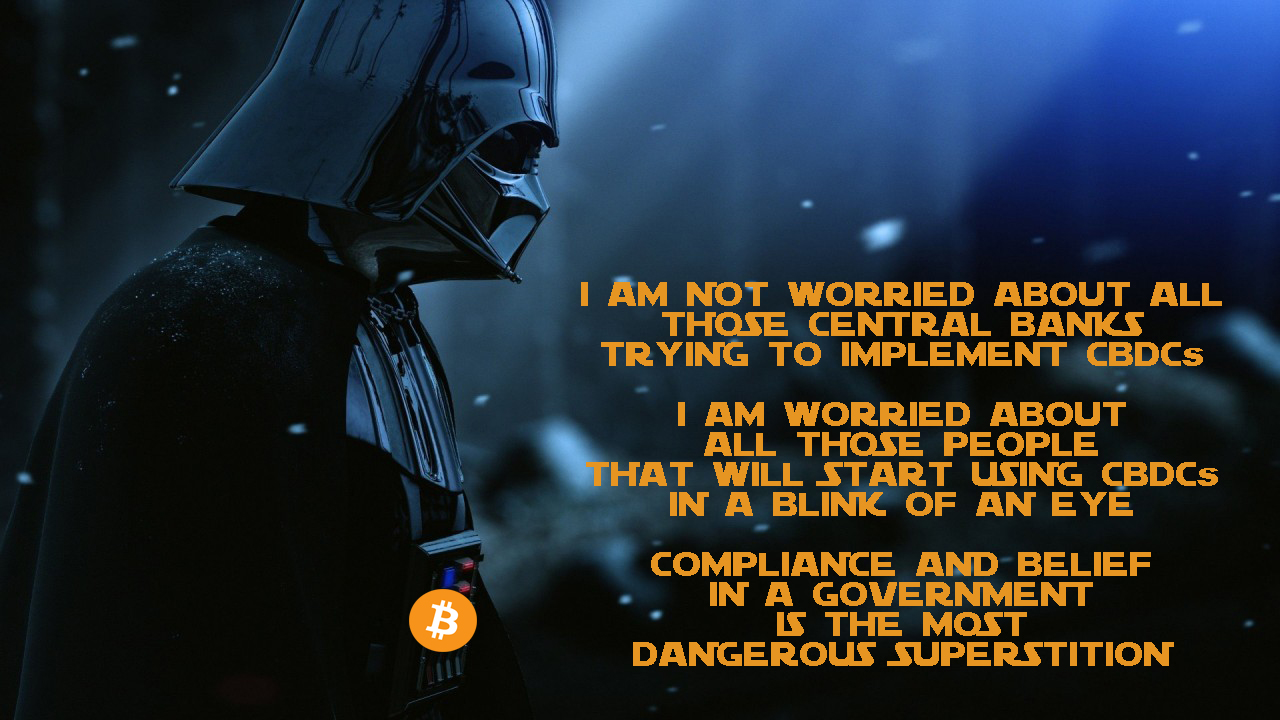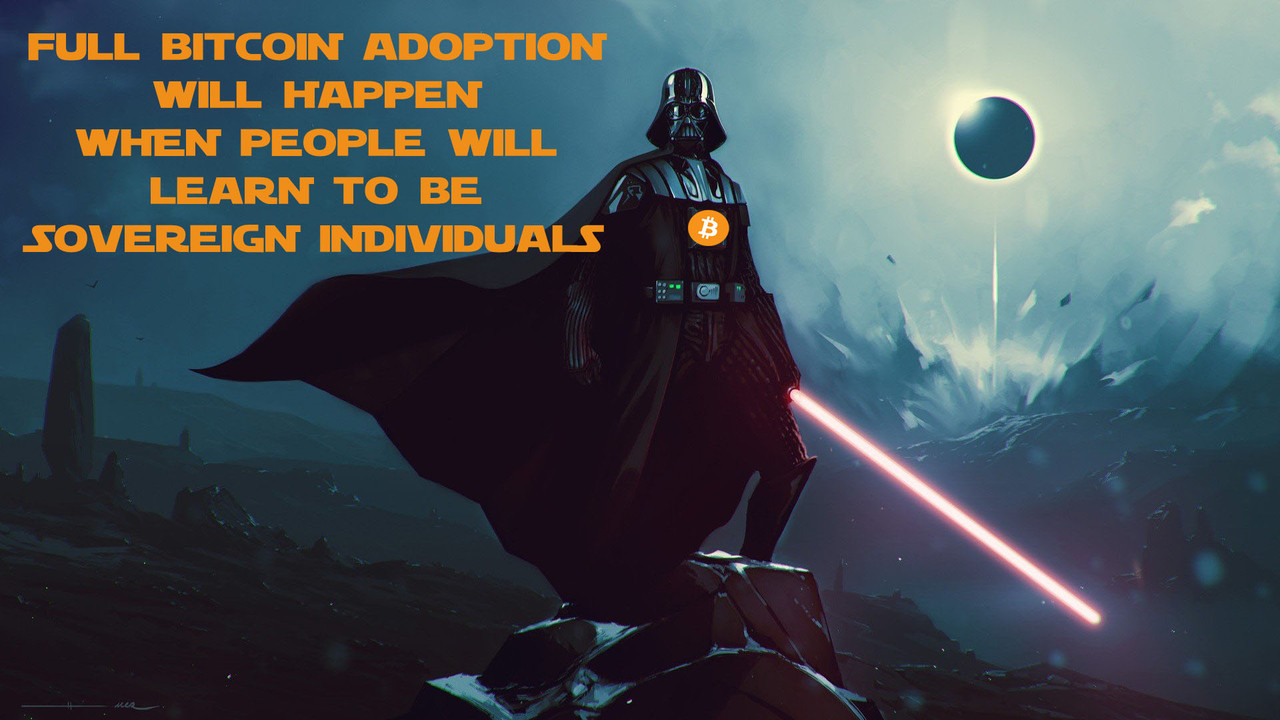The part of Bitcoin you have to trust
There is a famous quote from Satoshi where he says
Governments are good at cutting off the heads of a centrally controlled networks like Napster, but pure P2P networks like Gnutella and Tor seem to be holding their own.
There's a lot in that last little phrase "seem to be holding their own."
Satoshi believed it was possible to build something that could "hold its own" against the power of the state. This is no small claim and, as you can see, even Satoshi wasn't fully sure of it: P2P networks only "seem" to be holding their own. It's not like we can prove it.
The truth is, we can never really know if it will be true tomorrow. Bitcoin is based on this hope that we can resist the state, but there's no reason this has to be true. We just have the somewhat shaky evidence that governments don't seem to be able to squash networks with certain qualities.
It's possible that they just haven't wanted to.
There is no promised land
It doesn't get said very often, but Bitcoin comes with no guarantees. You may have noticed that when you fired up your node, there wasn't a EULA nor did you have to check a little box saying that you agreed to the terms and conditions (if you did, consider using different node software).
Neither is there a buyer of last resort when it comes to Bitcoin. If most people demand some stupid shitcoin instead of bitcoin, or if they all just want to buy stonks and hold fiat, there is no insurance that will prevent you from losing the value you are trying to keep in bitcoin.
Likewise, if you lose your keys, there is no number to call that will get them back. And if you screwed something up when you created your wallet or sent your transaction, it's on you.
And if the state turns its malevolent eye towards Bitcoin, maybe it will be able to squash it. Maybe they'll print money to buy miners and get a majority of hashrate or maybe they'll just put their finger on the centralizing pressures of mining that already exist so they can have a nice easy target for when they want to attack Bitcoin. Perhaps the state will impose such draconian punishments on the self-sovereign use of Bitcoin that most people abandon it.
Bitcoin is a good money for those in the wilderness
We hold on to our dreams of a world where bankers don't get bailouts and politicians can't sneak our savings by printing money for their friends, and the crowd of confident Bitcoin boosters who write books have documented 1,000 reasons why Bitcoin is economically and politically certain to end the fiat game. As they say: nothing stops this train.
But that's just something we take on faith.
Resisting the state does not necessarily mean defeating it. It's possible that Bitcoin remains a niche subversive tool, like TOR, something that is only used by punks who dislike the state -- and that could be fabulous outcome, even if it doesn't make us all rich.
I've been reading Cryptoeconomics again, and this is an attempt to work through some of the ideas in the chapter called "Axiom of Resistance" which I am copying below.
Axiom of Resistance
In modern logic an axiom is a premise, it cannot be proven. It is a starting assumption against which other things may be proven. For example, in Euclidean geometry one cannot prove that parallel lines never meet. It simply defines the particular geometry.
Proving statements about Bitcoin requires reliance on axiomatic systems, specifically mathematics, probability and catallactics, and therefore the assumptions upon which they rely. However Bitcoin also relies on an axiom not found in these systems. Satoshi alludes to this in an early statement:
You will not find a solution to political problems in cryptography.Yes, but we can win a major battle in the arms race and gain a new territory of freedom for several years.Governments are good at cutting off the heads of a centrally controlled networks like Napster, but pure P2P networks like Gnutella and Tor seem to be holding their own.Satoshi Thu Nov 6 15:15:40 EST 2008
In other words there is an assumption that it is possible for a system to resist state control. This is not accepted as a fact but deemed to be a reasonable assumption, due to the behavior of similar systems, on which to base the system.
One who does not accept the axiom of resistance is contemplating an entirely different system than Bitcoin. If one assumes it is not possible for a system to resist state controls, conclusions do not make sense in the context of Bitcoin - just as conclusions in spherical geometry contradict Euclidean. How can Bitcoin be permissionless or censorship-resistant without the axiom? The contradiction leads one to make obvious errors in an attempt to rationalize the conflict.
It is common for people to refer cynically to a Bitcoin-like system that omits the resistance axiom as just another "PayPal", a designation not without merit. Confinity originally attempted to create a system with a similar value proposition to Bitcoin. Having failed to do so it discarded the axiom, building the PayPal we know today.

